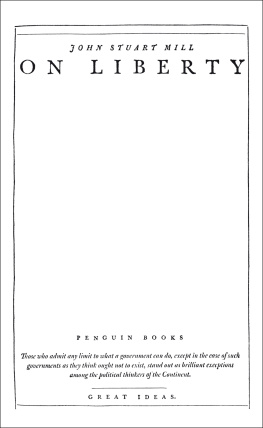John Ruskin 18191900
John Ruskin
The Lamp of Memory
PENGUIN BOOKS GREAT IDEAS
PENGUIN BOOKS
Published by the Penguin Group
Penguin Books Ltd, 80 Strand, London WC2R 0RL , England
Penguin Group (USA) Inc., 375 Hudson Street, New York, New York 10014, USA
Penguin Group (Canada), 90 Eglinton Avenue East, Suite 700, Toronto, Ontario, Canada M4P 2Y3 (a division of Pearson Penguin Canada Inc.)
Penguin Ireland, 25 St Stephens Green, Dublin 2, Ireland (a division of Penguin Books Ltd)
Penguin Group (Australia), 250 Camberwell Road, Camberwell, Victoria 3124, Australia (a division of Pearson Australia Group Pty Ltd)
Penguin Books India Pvt Ltd, 11 Community Centre, Panchsheel Park, New Delhi 110 017, India
Penguin Group (NZ), 67 Apollo Drive, Rosedale, North Shore 0632, New Zealand (a division of Pearson New Zealand Ltd)
Penguin Books (South Africa) (Pty) Ltd, 24 Sturdee Avenue, Rosebank, Johannesburg 2196, South Africa
Penguin Books Ltd, Registered Offices: 80 Strand, London, WC2R 0RL , England
www.penguin.com
The Lamp of Memory first published in The Seven Lamps of Architecture, 1849
Cambridge School of Art: Inaugural Address first published 1858
Of Kings Treasuries first published in Sesame and Lilies: Two Lectures, 1865
Traffic first published in The Crown of Wild Olive: Four Lectures on Industry and War in 1866
This collection first published 2008
All rights reserved
Except in the United States of America, this book is sold subject to the condition that it shall not, by way of trade or otherwise, be lent, re-sold, hired out, or otherwise circulated without the publishers prior consent in any form of binding or cover other than that in which it is published and without a similar condition including this condition being imposed on the subsequent purchaser
ISBN: 978-0-141-96318-1
The Lamp of Memory
Among the hours of his life to which the writer looks back with peculiar gratitude, as having been marked by more than ordinary fulness of joy or clearness of teaching, is one passed, now some years ago, near time of sunset, among the broken masses of pine forest which skirt the course of the Ain, above the village of Champagnole, in the Jura. It is a spot which has all the solemnity, with none of the savageness, of the Alps; where there is a sense of a great power beginning to be manifested in the earth, and of a deep and majestic concord in the rise of the long low lines of piny hills; the first utterance of those mighty mountain symphonies, soon to be more loudly lifted and wildly broken along the battlements of the Alps. But their strength is as yet restrained; and the far reaching ridges of pastoral mountain succeed each other, like the long and sighing swell which moves over quiet waters from some far off stormy sea. And there is a deep tenderness pervading that vast monotony. The destructive forces and the stern expression of the central ranges are alike withdrawn. No frost-ploughed, dust-encumbered paths of ancient glacier fret the soft Jura pastures; no splintered heaps of ruin break the fair ranks of her forest; no pale, defiled, or furious rivers send their rude and changeful ways among her rocks. Patiently, eddy by eddy, the clear green streams wind along their well-known beds; and under the dark quietness of the undisturbed pines, there spring up, year by year, such company of joyful flowers as I know not the like of among all the blessings of the earth. It was spring time, too; and all were coming forth in clusters crowded for very love; there was room enough for all, but they crushed their leaves into all manner of strange shapes only to be nearer each other. There was the wood anemone, star after star, closing every now and then into nebulae; and there was the oxalis, troop by troop, like virginal processions of the Mois de Marie, the dark vertical clefts in the limestone choked up with them as with heavy snow, and touched with ivy on the edges ivy as light and lovely as the vine; and, ever and anon, a blue gush of violets, and cowslip bells in sunny places; and in the more open ground, the vetch, and comfrey, and mezereon, and the small sapphire buds of the Polygala Alpina, and the wild strawberry, just a blossom or two, all showered amidst the golden softness of deep, warm, amber-coloured moss. I came out presently on the edge of the ravine: the solemn murmur of its waters rose suddenly from beneath, mixed with the singing of the thrushes among the pine boughs; and, on the opposite side of the valley, walled all along as it was by grey cliffs of limestone, there was a hawk sailing slowly off their brow, touching them nearly with his wings, and with the shadows of the pines flickering upon his plumage from above; but with the fall of a hundred fathoms under his breast, and the curling pools of the green river gliding and glittering dizzily beneath him, their foam globes moving with him as he flew. It would be difficult to conceive a scene less dependent upon any other interest than that of its own secluded and serious beauty; but the writer well remembers the sudden blankness and chill which were cast upon it when he endeavoured, in order more strictly to arrive at the sources of its impressiveness, to imagine it, for a moment, a scene in some aboriginal forest of the New Continent. The flowers in an instant lost their light, the river its music; the hills became oppressively desolate; a heaviness in the boughs of the darkened forest showed how much of their former power had been dependent upon a life which was not theirs, how much of the glory of the imperishable, or continually renewed, creation is reflected from things more precious in their memories than it, in its renewing. Those ever springing flowers and ever flowing streams had been dyed by the deep colours of human endurance, valour, and virtue; and the crests of the sable hills that rose against the evening sky received a deeper worship, because their far shadows fell eastward over the iron walls of Joux, and the four-square keep of Granson.
It is as the centralization and protectress of this sacred influence, that Architecture is to be regarded by us with the most serious thought. We may live without her, and worship without her, but we cannot remember without her. How cold is all history, how lifeless all imagery, compared to that which the living nation writes, and the uncorrupted marble bears! how many pages of doubtful record might we not often spare, for a few stones left one upon another! The ambition of the old Babel builders was well directed for this world: there are but two strong conquerors of the forgetfulness of men, Poetry and Architecture; and the latter in some sort includes the former, and is mightier in its reality: it is well to have, not only what men have thought and felt, but what their hands have handled, and their strength wrought, and their eyes beheld, all the days of their life. The age of Homer is surrounded with darkness, his very personality with doubt. Not so that of Pericles: and the day is coming when we shall confess, that we have learned more of Greece out of the crumbled fragments of her sculpture than even from her sweet singers or soldier historians. And if indeed there be any profit in our knowledge of the past, or any joy in the thought of being remembered hereafter, which can give strength to present exertion, or patience to present endurance, there are two duties respecting national architecture whose importance it is impossible to overrate: the first, to render the architecture of the day, historical; and, the second, to preserve, as the most precious of inheritances, that of past ages.
It is in the first of these two directions that Memory may truly be said to be the Sixth Lamp of Architecture; for it is in becoming memorial or monumental that a true perfection is attained by civil and domestic buildings; and this partly as they are, with such a view, built in a more stable manner, and partly as their decorations are consequently animated by a metaphorical or historical meaning.
Next page






